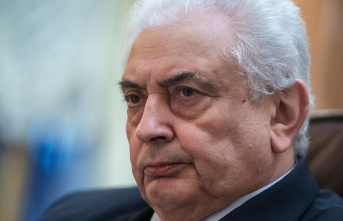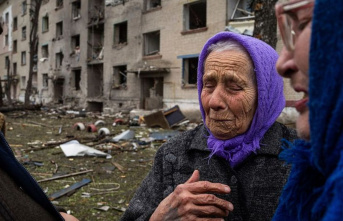WASHINGTON, -- The White House has stated that President Joe Biden will not stop the House committee looking into the Jan. 6 insurrection. Six insurrections at the U.S. Capitol set off a confrontation with former President Donald Trump who wants to protect those White House records.
The Friday letter sent by Dana Remus, White House counsel to the Archivist of America, comes at the beginning of a potentially long legal battle over the investigation. Trump, who encouraged his supporters to fight like hell the morning of the insurrection, and who has also defended the rioters that beat police and broke into Capitol building, is trying to stop Congress from learning more. Biden has so far stood with House Democrats who have requested thousands of pages of documents from Trump and subpoenaed witnesses.
Now, the House committee that is investigating the insurrection formed this summer and must sort through the details and obtain documents and testimony from any witnesses who might not cooperate. The jockeying among the two administrations, Congress, and witnesses will only delay the investigation and create the conditions for messy litigation that could last well into 2022.
A lawyer for Steve Bannon stated that the ex-White House aide will not comply with the House committee’s investigation into Trump's executive privilege assertions. Bannon was the only top Trump aide subpoenaed Sept. 23 and who wasn't working for Trump on Jan. 6.
In a statement, lawmakers stated that two other aides, Kash Patel (ex-Pentagon aide) and Mark Meadows (ex-White House Chief of Staff) are "engaging" in the committee.
Remus stated that Biden had determined that the invoking of executive privilege was "not in the best interests" of the United States. The House panel requested the records, which included communication between Trump's White House and information about funding and planning for rallies in Washington. A rally held near the White House on Jan. 6 featured remarks by Trump. This was followed by thousands of protestors against Biden's win.
Remus stated that the documents "shed light" on January 6, 2008 events at the White House and the Select Committee's need for understanding the facts.
Friday's letter was obtained by the Associated Press. It was reported for the first time by NBC News.
Trump replied to the National Archives with his own letter, in which he asserted privilege over almost 50 documents.
Trump stated that he was referring to the Presidential Records Act and that he made a protective assertion of constitutionally-based privilege with regard to any additional records. He also said that if the committee requests other information he considers confidential, 'I will take all necessary steps to defend the Office of the Presidency."
This investigation leads to a rare clash between the current and previous administrations. Biden is now the president and will be making the call on Trump's privilege claims. While Biden has already accommodated the first request from Congress, the White House stated that it will review any new claims on an "case-by-case basis."
Biden may not have the final say, but the courts if Trump decides that he will litigate, which is likely, or if Congress votes to imprison any witnesses in contempt of Congress. If there is a House contempt vote the Justice Department will decide whether to pursue prosecution.
Trump winning a case to block these documents would be a significant expansion of his unwritten executive power. He is likely to face a difficult battle as the courts traditionally leave executive privilege questions up to the White House occupant.
Democratic Rep. Bennie Thompson (Mississippi) and Republican Rep. Liz Cheney (Wyoming), led the Jan.6 panel. They said Friday in a statement that they would not allow any witness "to defy a lawful Subpoena or try to run out of time, and we will swiftly look into advancing a criminal contemptof Congress referral."
Bannon, Meadows and Patel were given Thursday deadlines by the committee's subpoenas. A fourth witness, Dan Scavino (ex-White House communications aide), was also required to submit documents. They also gave dates for next week's interviews. Patel stated in a statement that he could confirm that he had responded to the subpoena within the time frame, but did not go into detail. The committee's spokesperson declined to comment on Scavino's cooperation.
The Sept. 23 letter to Bannon stated that he had been in touch with Trump over the weeks leading up to the attack and urged him to concentrate his efforts on overturning the election of Jan. 6, when Congress certifies the electoral votes. Bannon was quoted as saying on Jan. 5, "all hell is going be broken tomorrow," according to the letter.
Robert Costello, Bannon's lawyer, wrote to the panel on Oct. 7, that until privilege issues are resolved, "we cannot respond to your requests to documents and testimony." Costello also stated that Bannon was ready to comply with court orders if and when they rule.
Costello's letter contains excerpts from a separate letter sent to Bannon by Justin Clark (a Trump lawyer). Clark said that documents and testimony submitted to the Jan. 6 panel could contain information that is "potentially protected against disclosure by executive or other privileges, such as the deliberative process privileges and attorney client privileges."
The committee has subpoenaed 13 others involved in Jan. 6's planning and set deadlines for interviews and documents later this month.











